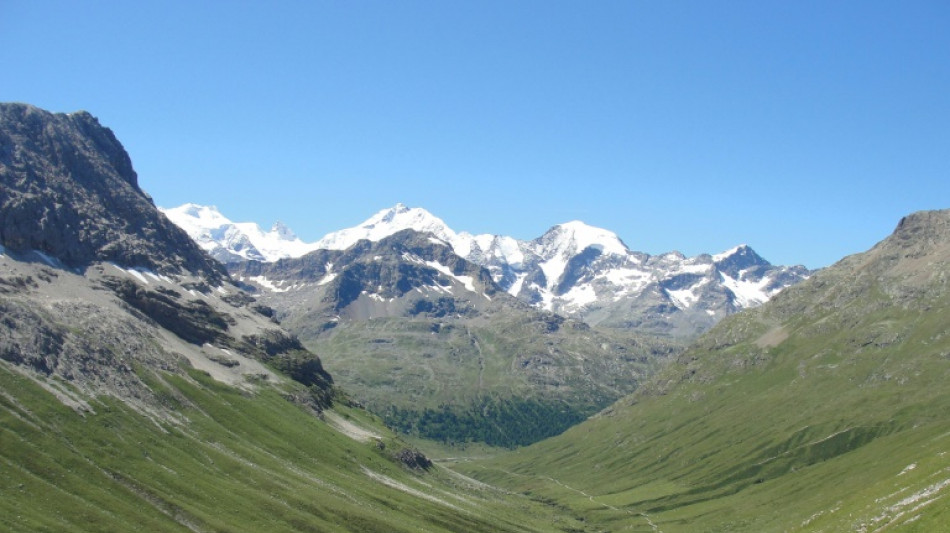
-
 Rocket re-entry pollution measured in atmosphere for first time
Rocket re-entry pollution measured in atmosphere for first time
-
Airbus ready to build two new European fighters if countries want

-
 Canada makes push to attract skilled migrants, including for defence
Canada makes push to attract skilled migrants, including for defence
-
US threatens to leave IEA if net zero focus remains
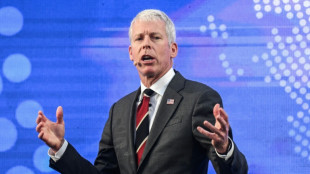
-
 Walmart outlines big AI ambitions as it reports mixed results
Walmart outlines big AI ambitions as it reports mixed results
-
Trump kicks off his 'Board of Peace,' as war clouds loom on Iran

-
 UK pubs to stay open late if home nations reach World Cup knockouts
UK pubs to stay open late if home nations reach World Cup knockouts
-
TotalEnergies in high-stakes French trial over climate change

-
 Bosnia probes fascist salutes at Croatian singer's concert
Bosnia probes fascist salutes at Croatian singer's concert
-
US and Israel issue dire warnings to Iran alongside US military buildup

-
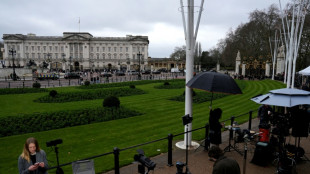 British public cheer Andrew's arrest with a smile and relief
British public cheer Andrew's arrest with a smile and relief
-
Argentine workers go on strike to protest Milei's labor reforms
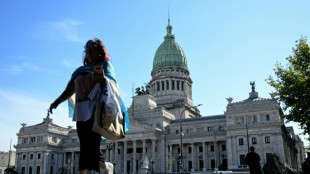
-
 Nakai targets Olympic skating upset as 'skimo' makes debut
Nakai targets Olympic skating upset as 'skimo' makes debut
-
What we know about ex-prince Andrew's friendship with Epstein

-
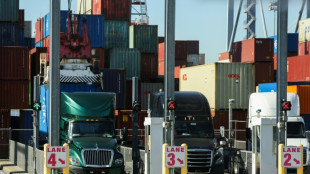 US trade deficit in goods widens to new record in 2025
US trade deficit in goods widens to new record in 2025
-
Oil extends gains on US-Iran tensions, stocks retreat

-
 Williams 'on the back foot' after missing Barcelona: Albon
Williams 'on the back foot' after missing Barcelona: Albon
-
Real Madrid submit evidence to UEFA in Vinicius racism probe

-
 Olympics rev up Milan's renewal but locals fear price to pay
Olympics rev up Milan's renewal but locals fear price to pay
-
Cardona Coll, Fatton win Olympic-debuting ski mountaineering sprint golds

-
 MSF will keep operating in Gaza 'as long as we can': mission head
MSF will keep operating in Gaza 'as long as we can': mission head
-
Russian Filippov wins first medal at Milan-Cortina Games for individual neutral athletes

-
 Italian Milan takes sprint honours at UAE Tour
Italian Milan takes sprint honours at UAE Tour
-
Dozens killed in jihadist attacks in northwest Nigeria

-
 Zimbabwe unbeaten in T20 World Cup after six-wicket Sri Lanka win
Zimbabwe unbeaten in T20 World Cup after six-wicket Sri Lanka win
-
Postecoglou admits taking Nottingham Forest post a 'bad decision'

-
 Switzerland's Fatton wins women's ski mountaineering sprint on Olympic debut
Switzerland's Fatton wins women's ski mountaineering sprint on Olympic debut
-
Kinghorn, Van der Merwe return for Scotland against Six Nations strugglers Wales

-
 Repsol says could boost Venezuela oil output over 50% in 12 months
Repsol says could boost Venezuela oil output over 50% in 12 months
-
UN says Israeli actions raise 'ethnic cleansing' fears in West Bank, Gaza

-
 Arteta tells faltering leaders Arsenal to harness Wolves 'pain' against Spurs
Arteta tells faltering leaders Arsenal to harness Wolves 'pain' against Spurs
-
Crowley gets nod for Irish as Prendergast drops out

-
 Unbeaten Swiss to meet Great Britain in Olympic men's curling semis
Unbeaten Swiss to meet Great Britain in Olympic men's curling semis
-
UK police arrest ex-prince Andrew on suspicion of misconduct

-
 Oil extends gains on US-Iran tensions, Europe stocks slide
Oil extends gains on US-Iran tensions, Europe stocks slide
-
Former prince Andrew, a historic downfall

-
 Sri Lanka post 178-7 against Zimbabwe ahead of T20 Super Eights
Sri Lanka post 178-7 against Zimbabwe ahead of T20 Super Eights
-
OpenAI's Altman tells leaders regulation 'urgently' needed

-
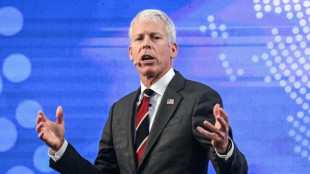 US renews threat to leave IEA
US renews threat to leave IEA
-
Liverpool boss Slot says Isak in 'final stages of rehab'

-
 Airbus ready to build two new European fighter jets if 'customers' ask
Airbus ready to build two new European fighter jets if 'customers' ask
-
UN Sudan probe finds 'hallmarks of genocide' in El-Fasher
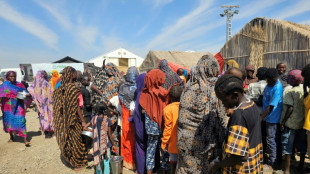
-
 Costelow starts, Hamer-Webb makes Wales debut in Six Nations clash with Scotland
Costelow starts, Hamer-Webb makes Wales debut in Six Nations clash with Scotland
-
Facing US warnings, Iran defends right to nuclear enrichment

-
 Ex-South Korea leader Yoon gets life in prison for insurrection
Ex-South Korea leader Yoon gets life in prison for insurrection
-
OpenAI's Altman says at India summit regulation 'urgently' needed

-
 British couple held in Iran sentenced to 10 years
British couple held in Iran sentenced to 10 years
-
West Indies ease past Italy to tune up for T20 Super Eights

-
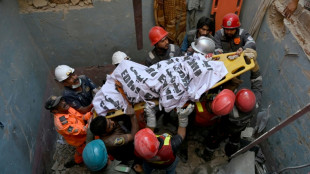 At least 16 killed after building collapses in Pakistan following blast
At least 16 killed after building collapses in Pakistan following blast
-
Summit photo op fails to unite AI startup rivals


Seen from space, the snow-capped Alps are going green
The famous snow-capped peaks of the Alps are fading fast and being replaced by vegetation cover -- a process called "greening" that is expected to accelerate climate change, a study said Thursday.
The research, published in Science, was based on 38 years of satellite imagery across the entirety of the iconic European mountain range.
"We were very surprised, honestly, to find such a huge trend in greening," first author Sabine Rumpf, an ecologist at the University of Basel, told AFP.
Greening is a well-recognized phenomenon in the Arctic, but until now hadn't been well established over a large scale in mountainous areas.
However, since both the poles and mountains are warming faster than the rest of the planet, researchers suspected comparable effects.
For their analysis, the team examined regions at 1,700 meters above sea level, to exclude areas used for agriculture. They also excluded forested areas and glaciers.
According to the findings, which covered 1984-2021, snow cover was no longer present in summer on nearly 10 percent of the area studied.
Rumpf pointed out that satellite images can only verify the presence or absence of snow -- but the first effect of warming is to reduce the depth of the snowpack, which can't be seen from space.
Secondly, the researchers compared the amount of vegetation using wavelength analysis to detect the amount of chlorophyll present, and found plant growth increased across 77 percent of the zone studied.
- Vicious cycle -
Greening happens in three different ways: plants begin growing in areas they previously weren't present, they grow taller and more densely due to favorable conditions, and finally particular species growing normally at lower altitudes move into higher areas.
"It is climate change that is driving these changes," said Rumpf.
"Warming means that we have longer vegetation periods, we have more benign conditions that foster plant growth, so plants can just grow more and faster," she added.
The effect is additive: "The warmer it gets, the more precipitation falls as rain rather than snow."
And there are several harmful consequences.
First, a large part of drinking water comes from melting snow. If water is not stored as snow, it disappears faster via rivers.
Next, the habitat species adapted specifically to the alpine environment is disrupted.
The snow's disappearance also harms the tourism industry, a key economic driver for the region.
"What we kind of tend to forget is the emotional aspects of these processes that the Alps are like a very iconic symbol and when people think about Switzerland, it's usually the Alps that they think about," stressed Rumpf.
While alpine greening could increase carbon sequestration, feedback loops are more likely to cause a net result of amplified warming, and thawing of permafrost, the researchers argue.
Snow reflects about 90 percent of solar radiation, vegetation absorbs much more, and radiates the energy back in the form of heat -- which in turn further accelerates warming, snow melt, and more vegetation: a vicious cycle.
- From green to brown? -
The future of the Alps can't be predicted with certainty.
"In terms of snow, it's pretty straightforward," said Rumpf. "I would expect the snow cover to disappear more and more, especially at lower elevations."
For the time being, another phenomenon known as "browning" -- in which the ground is no longer covered with either snow or vegetation -- has only been detected in less than one percent of the area studied.
This is much less than what has been observed in the Arctic, or in the mountains of Central Asia.
It is fueled by two factors: the increase in episodes of extreme rain followed by droughts, and a reduction in water available to plants that was produced by annual snowmelt.
"We do not know for the future whether browning is going to occur more and more," concluded Rumpf, who hopes to repeat the observations in a few years' time.
F.Bennett--AMWN


